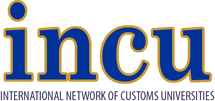One of the INCU’s main objectives is to promote academic excellence in Customs matters.
Today, the modern customs manager requires a distinct set of knowledge, skills and behaviour which can only be delivered through a more professional approach to education, development and career management. To improve skills and competencies of customs professionals, the WCO in collaboration with the academic community have consolidated their efforts to develop global professional standards for Customs.
As a result, the INCU in partnership with the WCO developed a set of Professional Standards for strategic and operational managers (to meet the requirements of the new customs and border environment), which can be used by educational institutions to benchmark their academic programs in the field of Customs and position themselves in the delivery market.
For the first time there is a clearly defined pathway to education in the Customs field. Customs administrations and other border agencies, educational institutions and students of Customs matters now have international standards as criteria for curricula development, recruitment and career development. There is also now a scheme whereby qualifying academic programs and graduates of such programs become eligible for WCO accreditation and academic institutions can apply to the WCO for a formal recognition attesting that their programs meet the international standards for the Customs profession.
The INCU has been working closely with the WCO in this area over the years with the aim to support the future activities related to this collaboration, promote the development of educational products and services, and explore potential resources for funding by increasing the knowledge and interest of donor organisations about the academic research and academic projects relating to Customs.
The INCU considers that the next step is to review and, if necessary, further develop the Professional Standards to address the requirements of the broader range of professionals who manage the diverse facets of borders.
Also, noting the need to develop education and training programs that meet the requirements of both the public and private sectors, the INCU has resolved that it is desirable to:
- develop a definition of the term “customs profession” which includes both public and private sector members of the international trading community;
- identify the requisite knowledge, skills and competencies of those engaged in the customs profession; and
- revise existing WCO recognition guidelines and procedures, or develop a new set of guidelines for accrediting education and training programs that meet the identified knowledge, skill and competency requirements.
Currently, the INCU is working closely the WCO on reviewing the Professional Standards and the WCO Guidelines for Recognition of the University Customs Curricula.
At the same time, the INCU continues to encourage academic institutions and Customs administrations to increase their co-operation in the field of Customs education by reviewing their existing academic programs in the field of customs and border management; developing new academic programs including joint programs in collaboration with other INCU members and affiliates and customs administrations. The INCU also promotes and encourages mutual recognition of INCU member education and training programs through credit allocation, cross-institution arrangements and other means.
